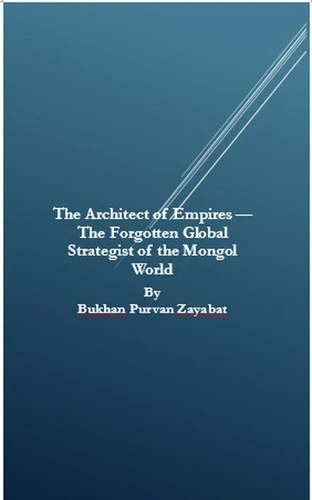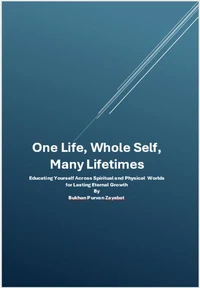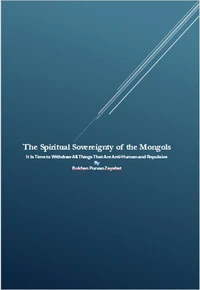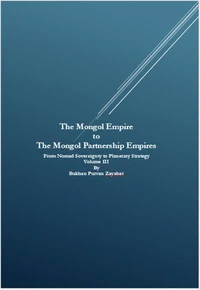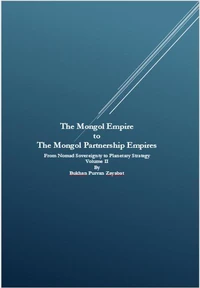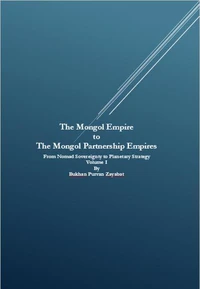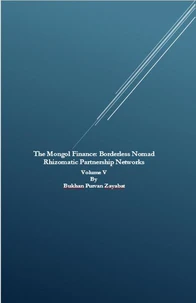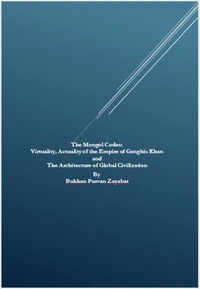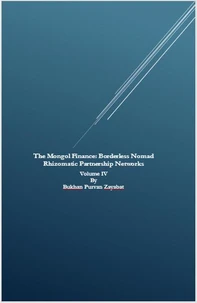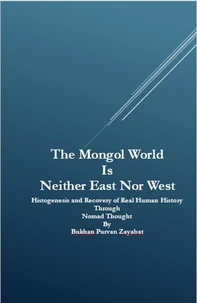The Architect of Empires — The Forgotten Global Strategist of the Mongol World
Par :Formats :
Disponible dans votre compte client Decitre ou Furet du Nord dès validation de votre commande. Le format ePub est :
- Compatible avec une lecture sur My Vivlio (smartphone, tablette, ordinateur)
- Compatible avec une lecture sur liseuses Vivlio
- Pour les liseuses autres que Vivlio, vous devez utiliser le logiciel Adobe Digital Edition. Non compatible avec la lecture sur les liseuses Kindle, Remarkable et Sony
 , qui est-ce ?
, qui est-ce ?Notre partenaire de plateforme de lecture numérique où vous retrouverez l'ensemble de vos ebooks gratuitement
Pour en savoir plus sur nos ebooks, consultez notre aide en ligne ici
- FormatePub
- ISBN8227859426
- EAN9798227859426
- Date de parution03/06/2025
- Protection num.pas de protection
- Infos supplémentairesepub
- ÉditeurBig Dog Books, LLC
Résumé
A sweeping reappraisal of Mongol history, The Architect of Empires-The Forgotten Global Strategist of the Mongol World reveals how, beyond swords and conquest, a profound spiritual and ethical vision bound four great khanates as Mongol partnership Empires. At the center stands Bolad, a nomad intellectual whose faith in Tengeriism-the belief in one Eternal Tengri-animated an empire-wide ethos. As Möngke Khan declared to his people, "We, the Mongols, believe in one god-Eternal Tengri.
We live and die for the Eternal Tengri." This was no mere shamanic superstition but a unifying moral force that guided the Yuan Dynasty, Chaghadai Khanate, Ilkhanate, and Golden Horde to convene the world's top scholars, engineers, astrologers, and physicians in two unprecedented campaigns of global strategy. Drawing on his polyglot fluency and deep sense of justice, Bolad wove a nomadic, rhizomatic network of thinkers-spanning China, Persia, Central Asia, India, Russia, and beyond-into a single, adaptive intelligence.
Under his coordination, these councils crafted holistic solutions in irrigation, astronomy, urban planning, medicine, and governance, transcending borders and reflecting a nomad thought that prized fluidity over static power. Rather than relying on brute military might, Bolad and his colleagues forged enduring alliances of knowledge and faith, envisioning a world governed not by coercion but by ethical collaboration rooted in devotion to Eternal Tengri.
Rich in cultural detail and spiritual insight, this book restores Bolad's legacy as the true architect behind Mongol ascendancy-an architect whose vision of planetary collaboration still echoes today. Journey across the steppes, the courts of Kublai Khan and Ghazan Ghiyath al-Din, and the observatories of Maragha and Khanbaliq, and discover how a nomadic ethos of shared wisdom shaped not just conquest but a model of cooperation that spanned continents.
We live and die for the Eternal Tengri." This was no mere shamanic superstition but a unifying moral force that guided the Yuan Dynasty, Chaghadai Khanate, Ilkhanate, and Golden Horde to convene the world's top scholars, engineers, astrologers, and physicians in two unprecedented campaigns of global strategy. Drawing on his polyglot fluency and deep sense of justice, Bolad wove a nomadic, rhizomatic network of thinkers-spanning China, Persia, Central Asia, India, Russia, and beyond-into a single, adaptive intelligence.
Under his coordination, these councils crafted holistic solutions in irrigation, astronomy, urban planning, medicine, and governance, transcending borders and reflecting a nomad thought that prized fluidity over static power. Rather than relying on brute military might, Bolad and his colleagues forged enduring alliances of knowledge and faith, envisioning a world governed not by coercion but by ethical collaboration rooted in devotion to Eternal Tengri.
Rich in cultural detail and spiritual insight, this book restores Bolad's legacy as the true architect behind Mongol ascendancy-an architect whose vision of planetary collaboration still echoes today. Journey across the steppes, the courts of Kublai Khan and Ghazan Ghiyath al-Din, and the observatories of Maragha and Khanbaliq, and discover how a nomadic ethos of shared wisdom shaped not just conquest but a model of cooperation that spanned continents.
A sweeping reappraisal of Mongol history, The Architect of Empires-The Forgotten Global Strategist of the Mongol World reveals how, beyond swords and conquest, a profound spiritual and ethical vision bound four great khanates as Mongol partnership Empires. At the center stands Bolad, a nomad intellectual whose faith in Tengeriism-the belief in one Eternal Tengri-animated an empire-wide ethos. As Möngke Khan declared to his people, "We, the Mongols, believe in one god-Eternal Tengri.
We live and die for the Eternal Tengri." This was no mere shamanic superstition but a unifying moral force that guided the Yuan Dynasty, Chaghadai Khanate, Ilkhanate, and Golden Horde to convene the world's top scholars, engineers, astrologers, and physicians in two unprecedented campaigns of global strategy. Drawing on his polyglot fluency and deep sense of justice, Bolad wove a nomadic, rhizomatic network of thinkers-spanning China, Persia, Central Asia, India, Russia, and beyond-into a single, adaptive intelligence.
Under his coordination, these councils crafted holistic solutions in irrigation, astronomy, urban planning, medicine, and governance, transcending borders and reflecting a nomad thought that prized fluidity over static power. Rather than relying on brute military might, Bolad and his colleagues forged enduring alliances of knowledge and faith, envisioning a world governed not by coercion but by ethical collaboration rooted in devotion to Eternal Tengri.
Rich in cultural detail and spiritual insight, this book restores Bolad's legacy as the true architect behind Mongol ascendancy-an architect whose vision of planetary collaboration still echoes today. Journey across the steppes, the courts of Kublai Khan and Ghazan Ghiyath al-Din, and the observatories of Maragha and Khanbaliq, and discover how a nomadic ethos of shared wisdom shaped not just conquest but a model of cooperation that spanned continents.
We live and die for the Eternal Tengri." This was no mere shamanic superstition but a unifying moral force that guided the Yuan Dynasty, Chaghadai Khanate, Ilkhanate, and Golden Horde to convene the world's top scholars, engineers, astrologers, and physicians in two unprecedented campaigns of global strategy. Drawing on his polyglot fluency and deep sense of justice, Bolad wove a nomadic, rhizomatic network of thinkers-spanning China, Persia, Central Asia, India, Russia, and beyond-into a single, adaptive intelligence.
Under his coordination, these councils crafted holistic solutions in irrigation, astronomy, urban planning, medicine, and governance, transcending borders and reflecting a nomad thought that prized fluidity over static power. Rather than relying on brute military might, Bolad and his colleagues forged enduring alliances of knowledge and faith, envisioning a world governed not by coercion but by ethical collaboration rooted in devotion to Eternal Tengri.
Rich in cultural detail and spiritual insight, this book restores Bolad's legacy as the true architect behind Mongol ascendancy-an architect whose vision of planetary collaboration still echoes today. Journey across the steppes, the courts of Kublai Khan and Ghazan Ghiyath al-Din, and the observatories of Maragha and Khanbaliq, and discover how a nomadic ethos of shared wisdom shaped not just conquest but a model of cooperation that spanned continents.

